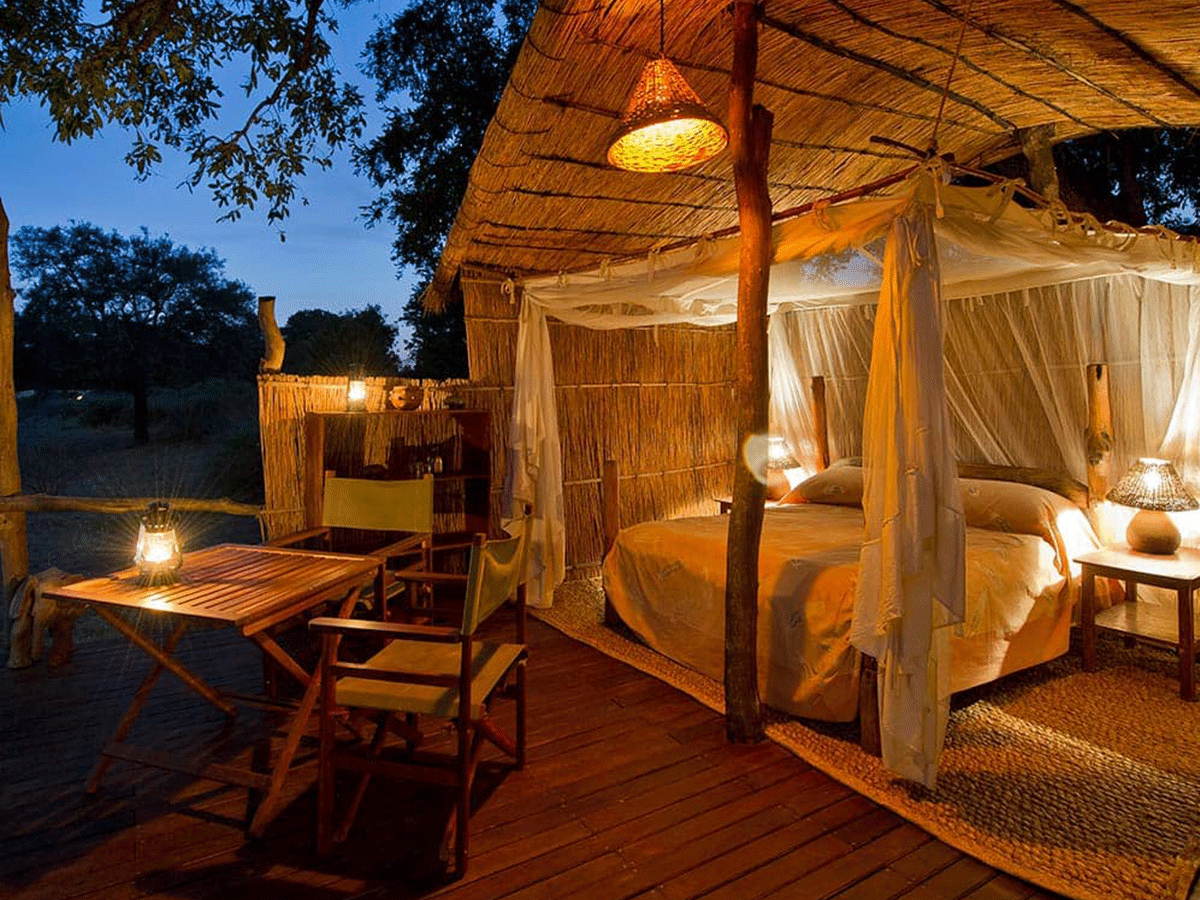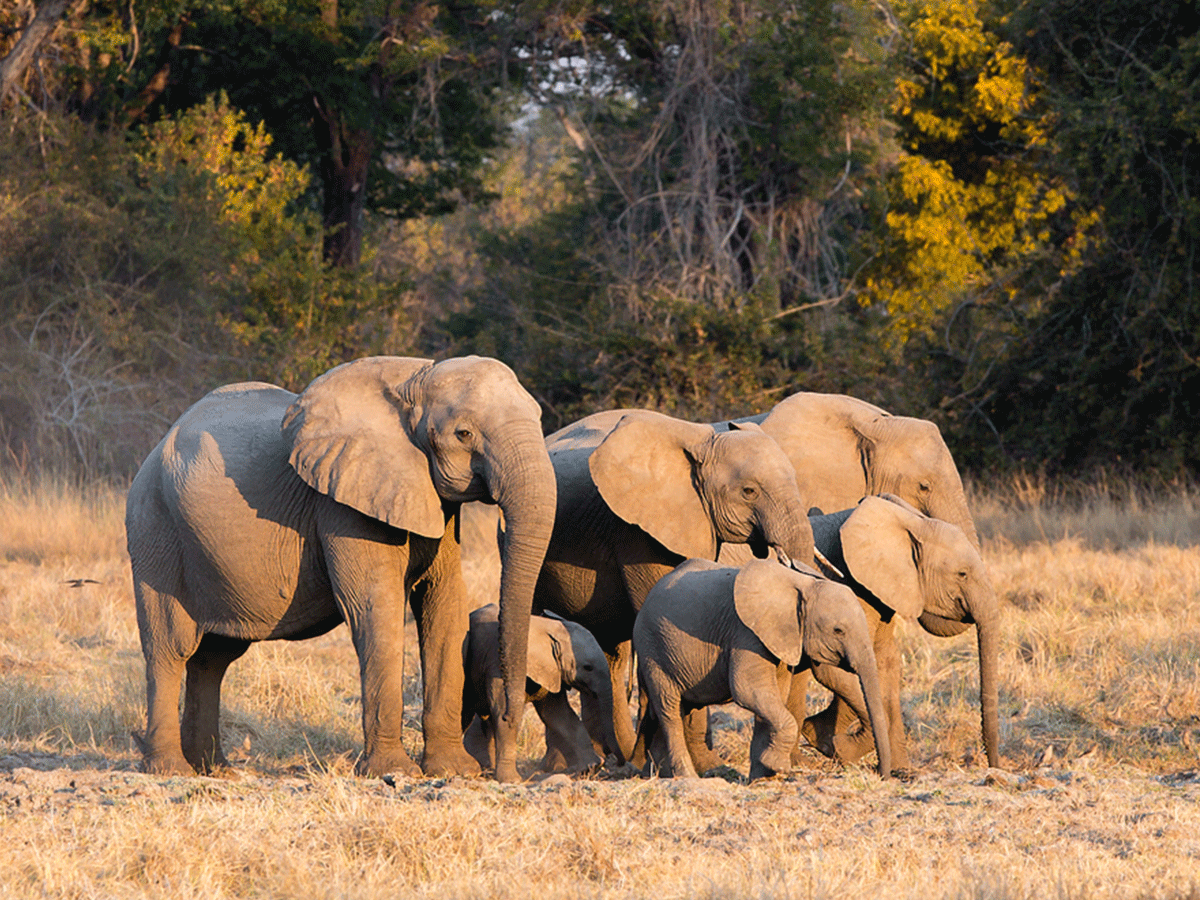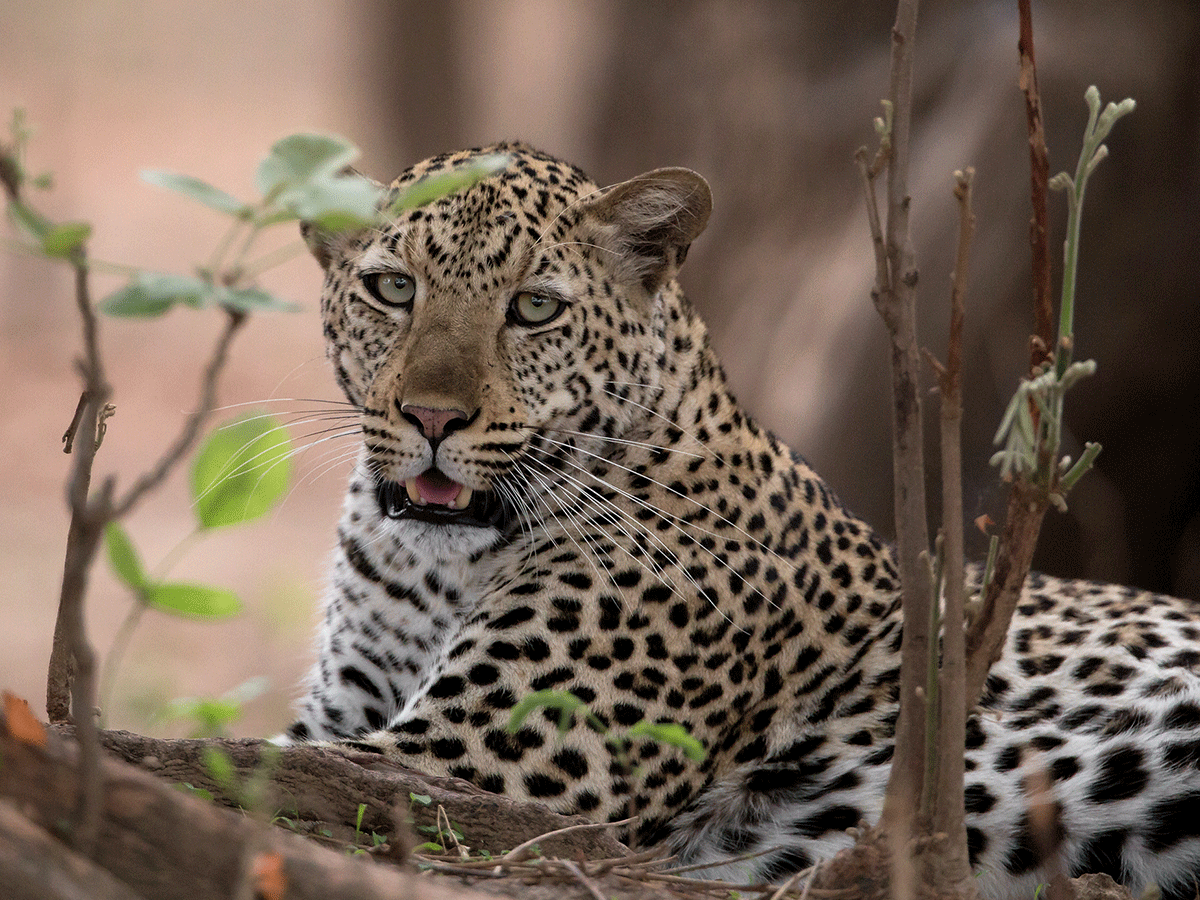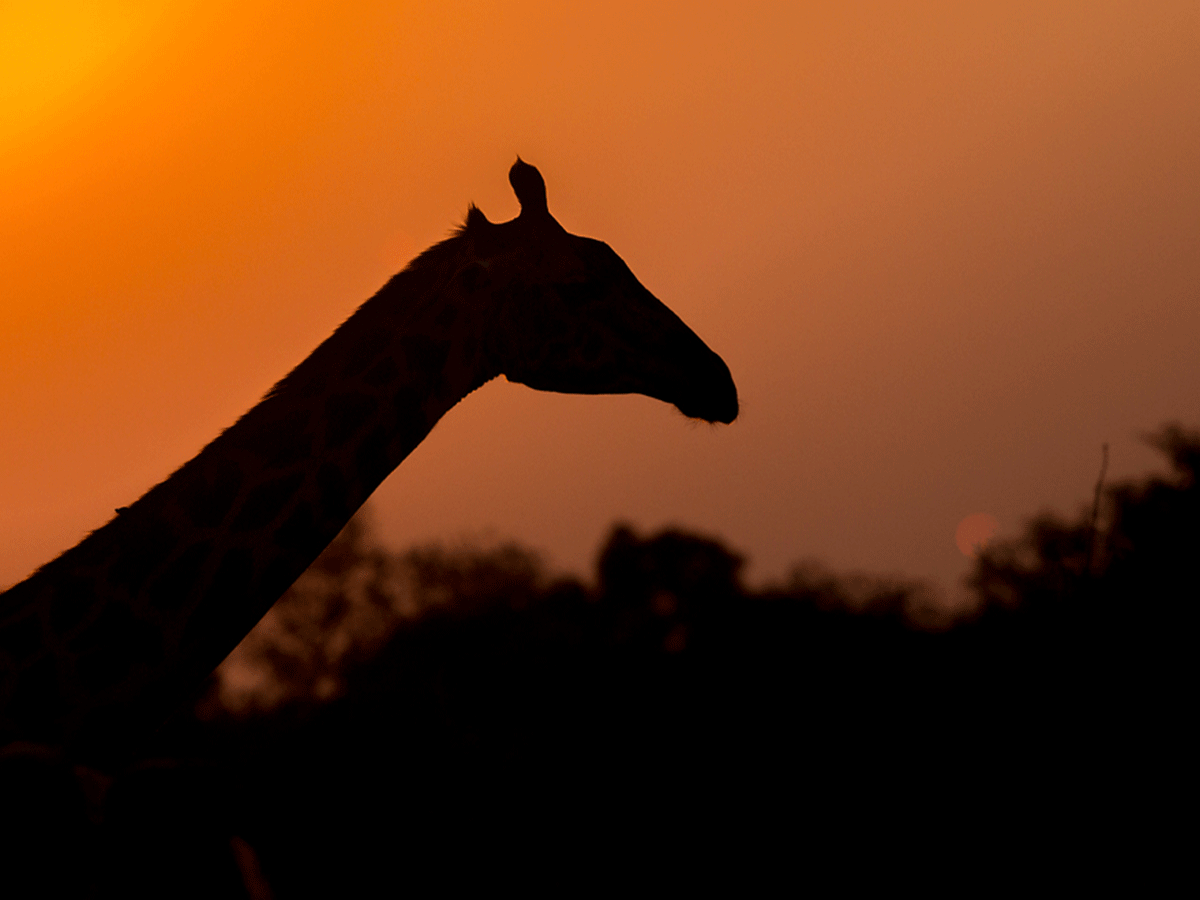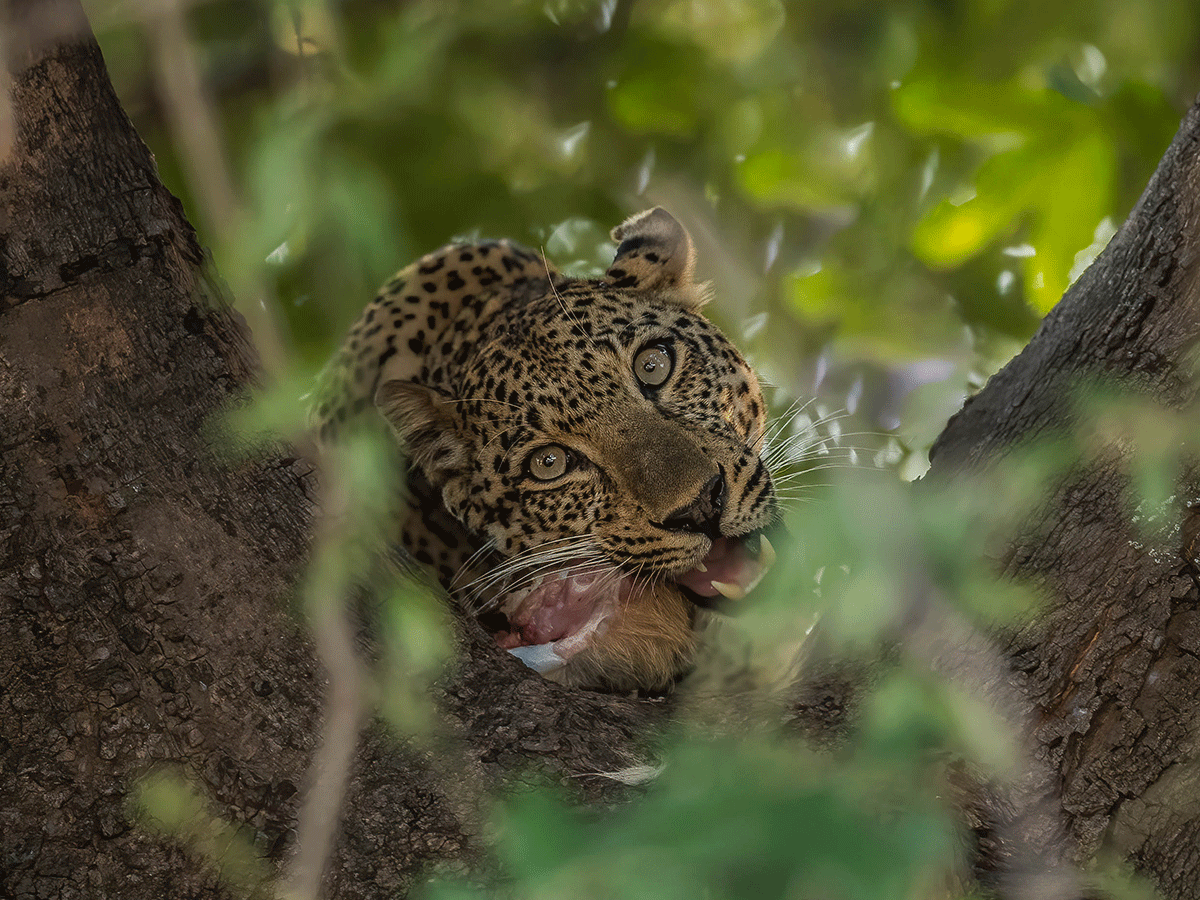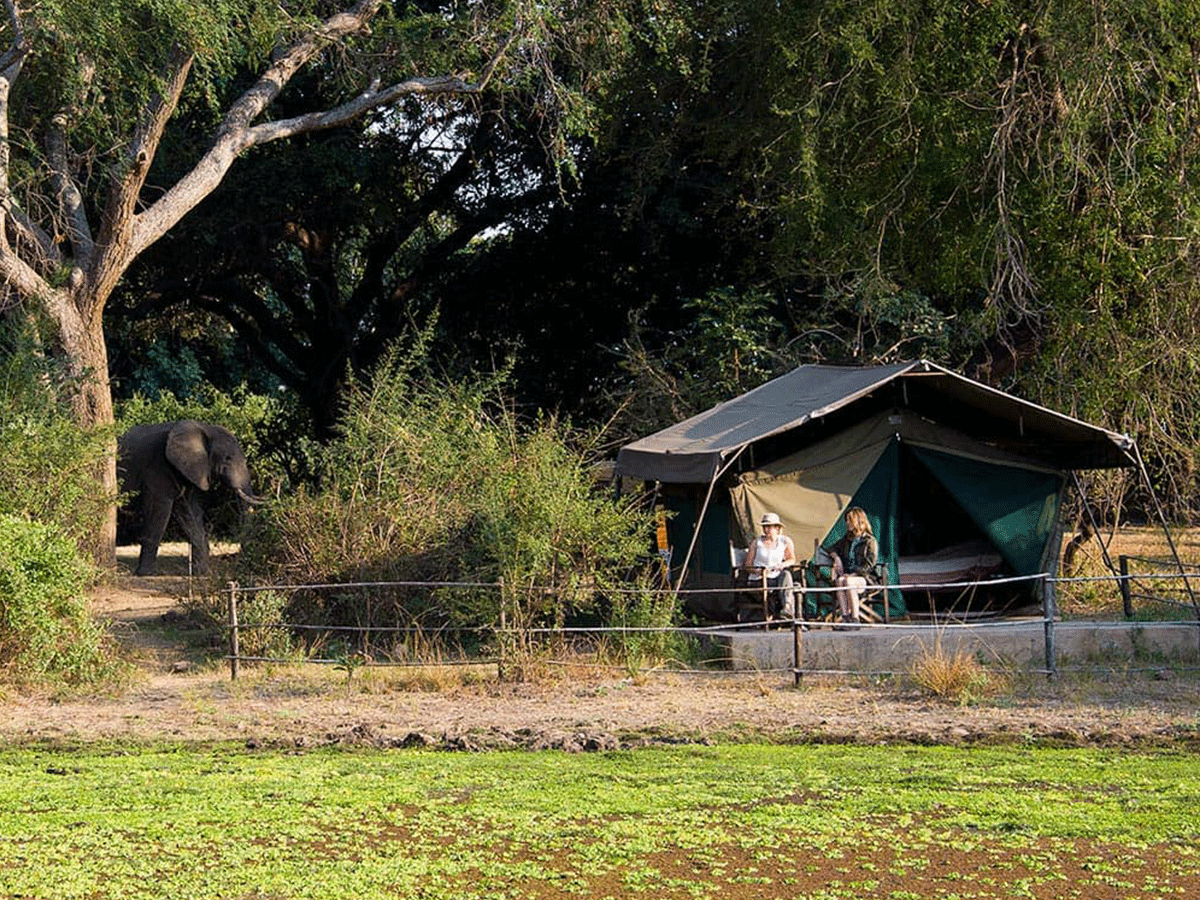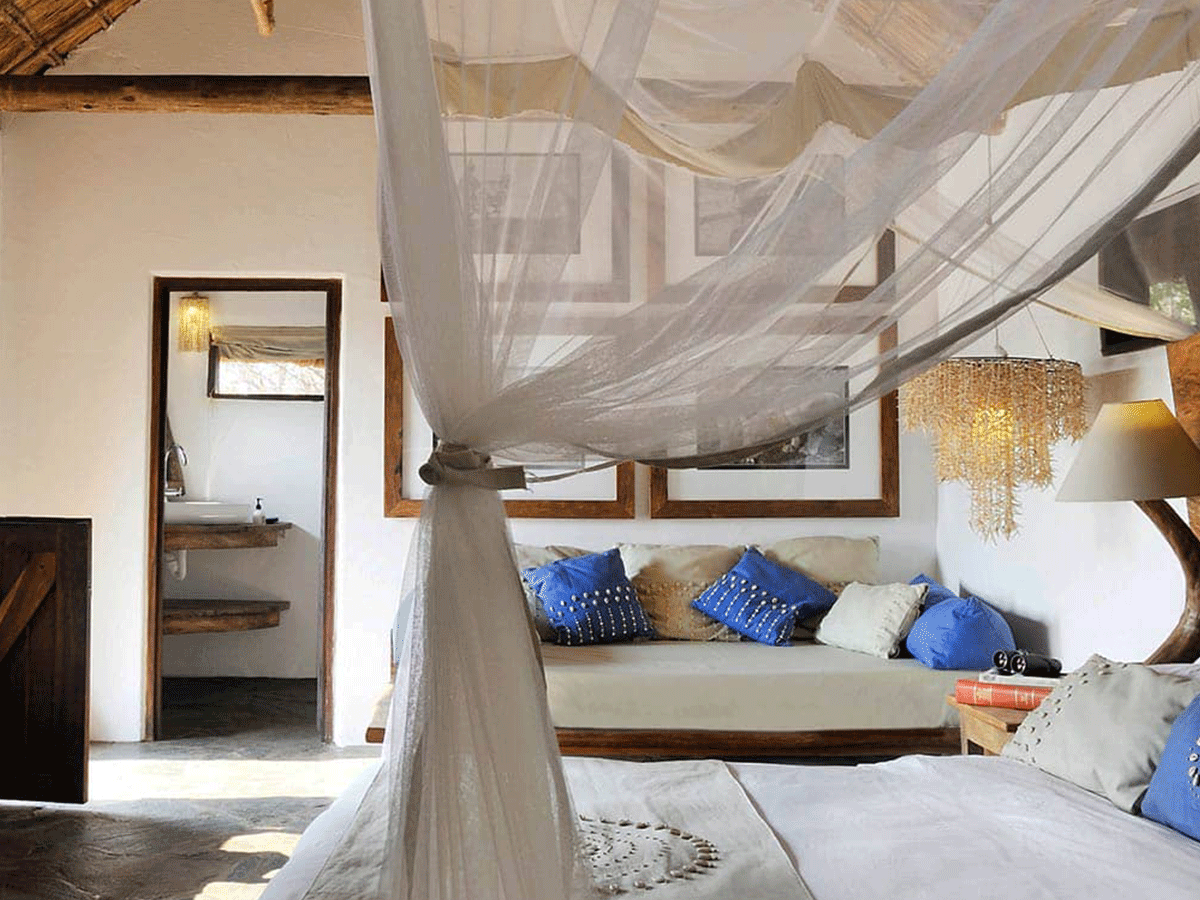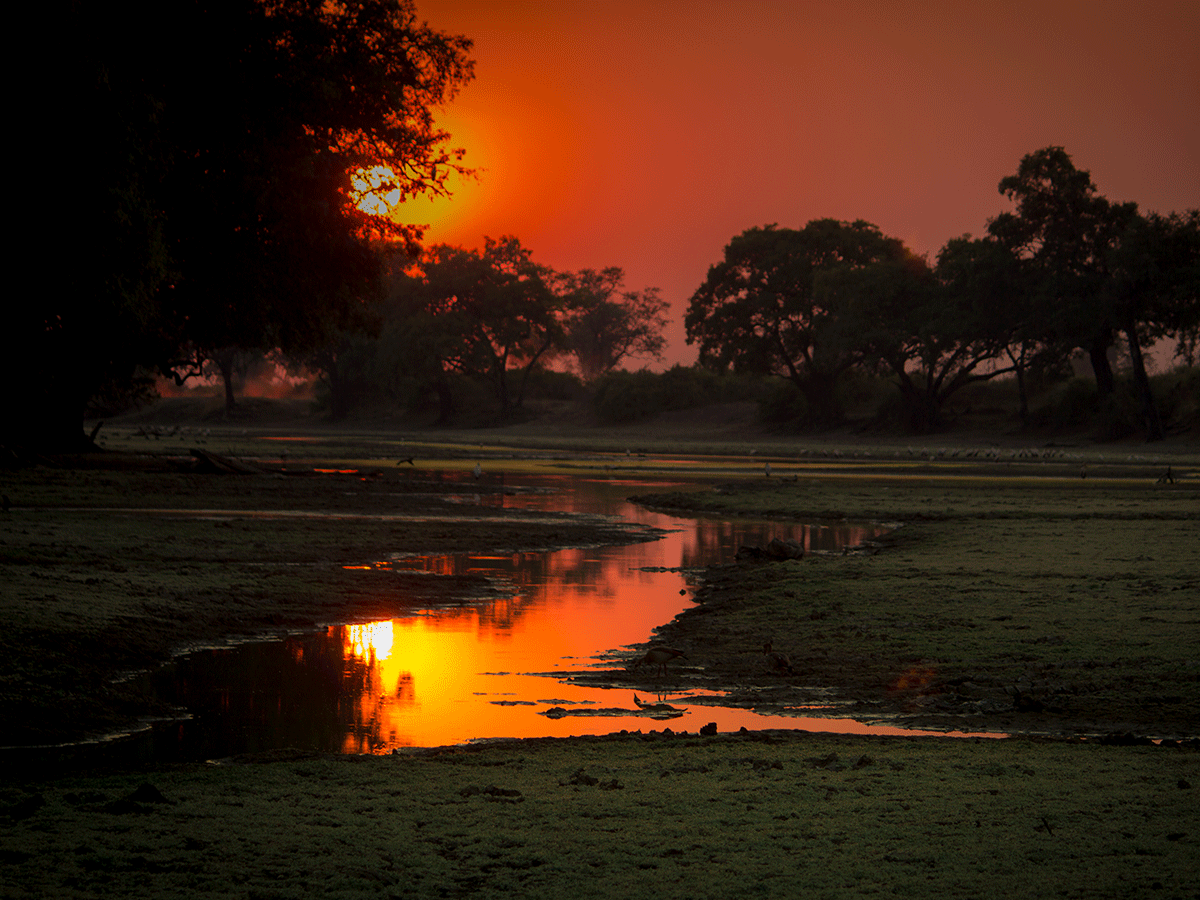Zambia Safaris, Tours & Holidays
Home » African Safari Destinations » Zambia Safaris, Tours & Holidays
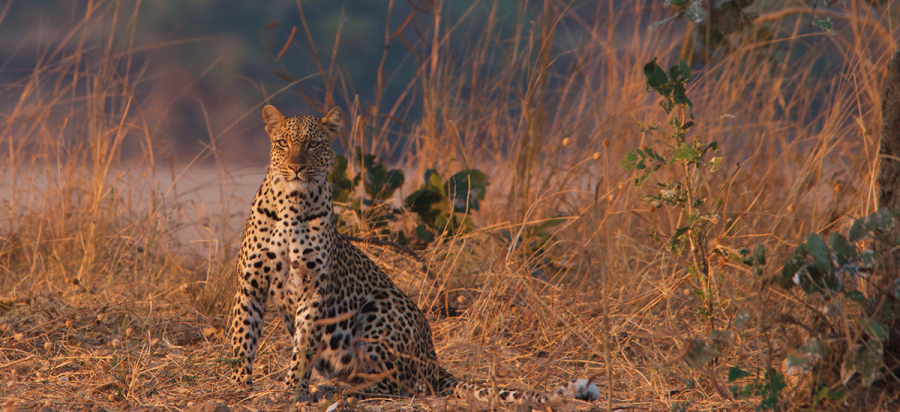
Zambia Safaris, Tours & Holidays
Zambia, in southern Africa, is a landlocked country of rugged terrain and diverse wildlife, with many parks and safari areas. On its border with Zimbabwe is famed Victoria Falls – indigenously called Mosi-oa-Tunya, or “Smoke That Thunders” – plunging a misty 108m into narrow Batoka Gorge. Spanning the Zambezi River just below the falls is Victoria Falls Bridge, a spectacular viewpoint.
Formerly called Northern Rhodesia as an integral part of Cecil Rhodes’ Cape to Cairo vision, Zambia is in fact steeped in history dating all the way backing to the African Stone Age. However, in many ways, the famous Scottish missionary David Livingstone put the country on the European map as he came to the shores of Lake Tanganyika in search of the source of the Nile in the early 19th century.
Whilst Zambia is now one of Africa’s most urbanized countries, much of the country remains wild, underdeveloped, and unspoiled, with a great percentage of land allocated by the government to conservation projects, national parks, and game management areas. Many of these parks are home to incredible numbers of Africa’s most-feted wild mammals and extraordinary birdlife.
Zambia’s remaining open rural areas are, for the most part, rich and fertile, with Zambia’s consistently warm tropical climate made less oppressive by the altitude of many parts of the country. One of the most water-rich countries in Africa, Zambia has 5 vast lakes, 3 major rivers, 17 waterfalls, and various wetland areas.
Many of Zambia’s 72 ethnic groups still inhabit these rural areas, relying on subsistence farming to get by.
Zambia is one of the fastest-growing economies on the African continent and tourism is crucial to the country’s on-going development.
How to get to Zambia
Most visitors to Zambia will either arrive in Lusaka or Livingstone. Being the capital, Lusaka is served by a number of international airlines, with many travelers flying here directly from Johannesburg (South Africa), Nairobi (Kenya), or Dar es Salaam (Tanzania). South African Airways, Air Namibia, Air Zimbabwe, Air Malawi, Kenya Airways, and Ethiopian Airlines all fly directly to Lusaka. The airport is about 30km from the city center and we organize transfers.
Passport, visa, and entry requirements
In order to obtain a visa on arrival, the visitor must have full information of his/her host and be providing a physical address where he/she will be staying for the duration of their stay. They must also have at least six months validity on their passports from the date of entry and the passport must also have at least 3 full blank pages.
Those arriving in Zambia by Air must be in possession of valid return air tickets. Those arriving by land and water must have enough funds for their stay in and departure from Zambia.
An e-Visa is an official document permitting entry into and travel within Zambia. It is an alternative to visas issued at Immigration Headquarters, Zambian Missions Abroad, and at the ports of entry. Applicants obtain their visas electronically after entering the required information and making payments by credit or debit card.
All persons who ordinarily require visas to come to Zambia are eligible to apply for e-visas. Note: Persons below the age of 16 cannot apply for an e-Visa. If traveling with an adult, they must be included in the adult’s application during the application process.
The health sector of Zambia
Zambia has a well-developed private and public health care system that provides specialized medical services such as diagnostic, curative, etc. The private health sector in particular has earned a reputation as providers of good quality health care. The government has declared the health care system as a priority sector. It is always recommended that visitors make use of travel insurance and medical aid services supplied by their providers at home.
Malaria and yellow fever vaccinations for Zambia
Malaria is a serious and sometimes fatal disease transmitted by mosquitoes. You cannot be vaccinated against malaria so travellers must travel with anti-malarial tablets and we recommend travellers to travel with their yellow card vaccination card just in case they ask for it at the airport in Lusaka.
Currency of Zambia
The official currency of Zambia is the Zambian Kwacha (ZMK) which fluctuates quite regularly. However most tourist places will accept new notes from US dollars, British pounds and Euros however we recommend changing money at the airport upon arrival so that you have local currency for tips and coffee during your safari.
The official language of Zambia
Zambia’s official language is English, but there are more than 70 different languages and dialects spoken throughout the country. Almost everyone will speak or understand some English and most Zambians living in the urban centres speak it fluently.
Signs and official documentation are almost always in English and/or Bemba and Nyanja, the country’s two most widely spoken local languages.
Best time to travel to Zambia
You have an excellent chance of seeing lots of wildlife in Zambia during the Dry season (May to October). This will fit in nicely with a visit to Victoria Falls, which is at its best from June to September. A Wet season safari (November to April) is much more challenging, as most parks and camps shut down because of heavy rain. The Mfuwe section of South Luangwa NP is an exception: you can drive its all-weather roads year-round.
What to wear while in Zambia
- Casual, comfortable clothes are the key when traveling in Zambia.
- During the day it is hot so our advice is to pack lightweight loose-fitting clothes in natural fabrics such as linen and cotton that will keep you cool and are easier to wash and dry.
- We suggest keeping lighting neutral colors – e.g. khaki, green, and brown, but not white as it will get dirty and dusty very quickly.
- Avoid blue or black clothing – the tsetse flies are drawn to these colors, and their bite can give you African sleeping sickness.
- And it is important to note that camouflage or military clothing and print are not permitted.
- Long trousers and long-sleeved tops will cover you from the harsh sun and protect against mosquitoes at night.
- Don’t forget a safari hat to protect your face and neck, and sunglasses.
- Wear plenty of sunscreens (we love the Riemann P20 range for 10-hour protection) and remember to bring your insect repellent
- When on safari, the idea is to relax and enjoy your time under the African sky and listen to the calls of the wild all around you! The dinner dress is therefore casual and comfortable.
- It would be a good idea to pack a lightweight and versatile travel jacket. We like the Scott vest range because they have been specifically designed with travel in mind, offer plenty of storage pockets
What to pack while traveling to Zambia
No matter where you go on holiday it’s important to spend some time thinking about what items you need to pack and not just stuff a load of clothes and toiletries into a bag. This is no different when visiting Zambia, especially if you will be going on safari.
Packing checklist:
- Clothes in neutral colors
- Long-sleeved shirts that offer protection from the sun and mosquitoes
- T-shirts
- Shorts
- Jeans or safari trousers for an evening and cooler days
- Jackets and sweaters for early morning and evening game drives
- A lightweight waterproof jacket
- Comfortable walking shoes
- Swimwear – many lodges have a pool where you can cool off. Also, you may want to jump into Devils Pool, Victoria Falls, or do some white-water rafting.
Accessories and electronics to pack:
- Camera
- Extra storage cards
- Additional lenses
- Binoculars
- Flashlight/ head torch
- Bird book
- A lightweight day bag – for day trips
- Travel adapter plug – Electric Power is 230V running at 50Hz. The plug type used is a three-pinned, rectangular blade plug.
- A power back or solar-powered phone charger – power blackouts are quite common. So be prepared!
- Sunscreen
- Sunglasses
- A hat
- Insect repellent
- Anti-histamine cream and tablets
- Glasses – if you wear contact lenses bring a pair of glasses as well as dust can be a problem
- Anti-malarial tablets – consult your doctor
Car hire and driving in Zambia
The driving license requirements in Zambia state that you must have a full driving license that is valid in your country of residence, In order to rent and pick up a car in Zambia, you need to be at least 21 years old and have held your license for over a year. Some suppliers may charge young drivers surcharge for drivers younger than 25 years old.
Accommodation in Zambia
Zambia has a wide range of accommodation options and you can choose from our growing list of establishments listed in each destination. From fabulously luxurious riverside lodges, 5-star hotels, stylish tented safari camps, rustic and remote bush camps, to homely guesthouses and B&B’s, self-catering chalets, backpackers, campsites, perhaps a houseboat, or even a mud hut in a rural village where you can experience true Zambian village life and fare.
Local foods of Zambia
Nshima is a staple food in Zambia – a very thick and smooth porridge made from ground maize. It is quite similar to the Kenyan ugali and the Zimbabwean sadza. Nshima is always consumed with soups, sauces, or stews, known as ndiwo in Zambia. The most common ndiwo dishes in the country are chibwabwa and ifisashi. Smaller pieces of nshima are typically torn by hand, and nshima is then used to scoop up the ndiwo dishes.
Tipping while traveling in Zambia
Tipping in Zambia is entirely at your discretion but as a guideline, we recommend the US $10 per person per day for your ranger and tracker and the US $25 to be divided amongst the rest of the lodge staff.
When it comes to restaurants, some establishments will add a service charge for your bill; if not, 10% is standard.
For in-depth tipping guidelines, enquire with one of our Africa Safari Experts – they’d be happy to share their knowledge with you.
Further information for Zambia
Zambia is one of the more stable countries in the region and entirely safe to visit. The government has committed itself to tourism and there has been a concerted attempt to eradicate poaching and protect the country’s fragile environment. Travelers are coming back but we recommend you get here before the rest!
Safety of Zambia
Zambia is one of the safer countries in Africa; however, you should use your common sense when it comes to staying safe, Bag snatching and theft from parked cars have been reported at restaurants and internet cafes in downtown areas of Lusaka and Livingstone, particularly near transport hubs and in some shopping areas. Always keep your bag or valuables secured and close to you.
SAFARI TOURS AND HOLIDAYS
NATIONAL PARKS
FAUNA & FLORA
| Wildlife |
| Birds |
| Vegetation |
POPULAR SAFARIS
| 4 Days South Luangwa Safari |
| 7 Days Victoria Falls & South Luangwa Safari |
| 9 Days Zambia Wildlife Safari |
| 10 Days Zambia & Botswana Safari Holiday |

